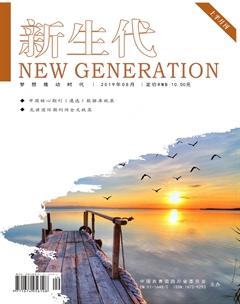Education agents in China and International Student Recruitment
To stand out from the increasing Chinese applicants, some parents and students choose to rely on the help of educational agents. In June 2014, Chinese government innovated the commercial registration of education agents from pre-approval process to post-approval, which strengthens the post-supervision. At present, the number of the legal education agents is around 500. The agents do not only serve for students in China but also work with some American institutions. For some American universities that are not very famous and cannot spend too much money to send admissions officers on expensive recruiting trips, those education agents may be a cost-efficient way to recruit international students (Lewin, 2008).
When the American institutions confront with this growing number of Chinese students, they should know the role that education agencies play in their application (Hagedorn, 2011). Because many Chinese students do not understand American admissions process, the market of education agents has arisen in China to help them, and in some cases, to do whatever it takes to get them accepted. For some Asian families whose native language is not English but have a strong aspiration to send their children to study abroad, these education agents play a valuable role. Agents will help navigate the confusing and complicated process of checking transcripts, writing materials, selecting institutions and getting a visa. Some agents get Chinese students into U.S. schools even by forging transcripts and fake essays.
There are some valuable researches about the educational agents in China; most of them employed quantitative approaches. A survey of approximately 900 international Chinese undergraduates in four institutions was taken to find the significant predictors of students choice of using or not using an agent (Zhang & Hagedorn, 2011). These participants were all about 20 years-old urban students, who believe American higher education have better quality than Chinese. There are 57 percent participants indicating using an agent in this survey while the rest (43 percent) indicated that they did not use an agent. Although this study also collects some qualitative data, it still needs more in-depth research by the qualitative method to understand more details about the process and experiences of agent services from the students perspectives, and also the feeling of students.
In respect of international student recruitment, there are several motivations of institutions to recruit more international students than before. Supported by Galway (2000) who reported that the top three rationales that institutions gave for participating in the recruitment of international students, these various motivations were: cultural exchanges, attracting talented students, and financial awards. International students brought significant economic benefits to the universities and local communities across the United States. For instance, during the 2013-2014 academic year, international students and their dependents contributed $26.8 billion to the U.S. economy.
Academically, international graduate students play an important role in teaching and research in higher education, especially in the scientific fields (Altbach, 1991).
International students obtain the understanding of U.S. culture. Meanwhile, they can also help broaden American students minds by the perspective of internationalization and globalization; and American students can also appreciate different cultures around the world. The existing literature suggests that international students are important for the quality and relevance of higher education since their presence on campuses are a key part of building a stronger international and intercultural dimension to teaching and research and a crucial global perspective to campuses.
References
Altbach, Philip G. 1998. Comparative Higher Education: Knowledge, the University, and Development. Greenwich, CT: Ablex Publishing Corporation.
Hu, J., & Hagedorn, L. S. (2014). Chinese Parents Hopes for their Only Children: A Transition Program Case Study. The Journal of College Admission, 223, 34-42.
Galway, A.D. (2000). Going global: Ontario Colleges of Applied Arts and Technology, international student recruitment and the export of education. Toronto, ON: Ontario Institute for Studies in Education, University of Toronto.
作者簡介:唐欣雨(1992.08),女,广西玉林人,助教,硕士研究生,西安医学院,研究方向英语教学,高等教育。

